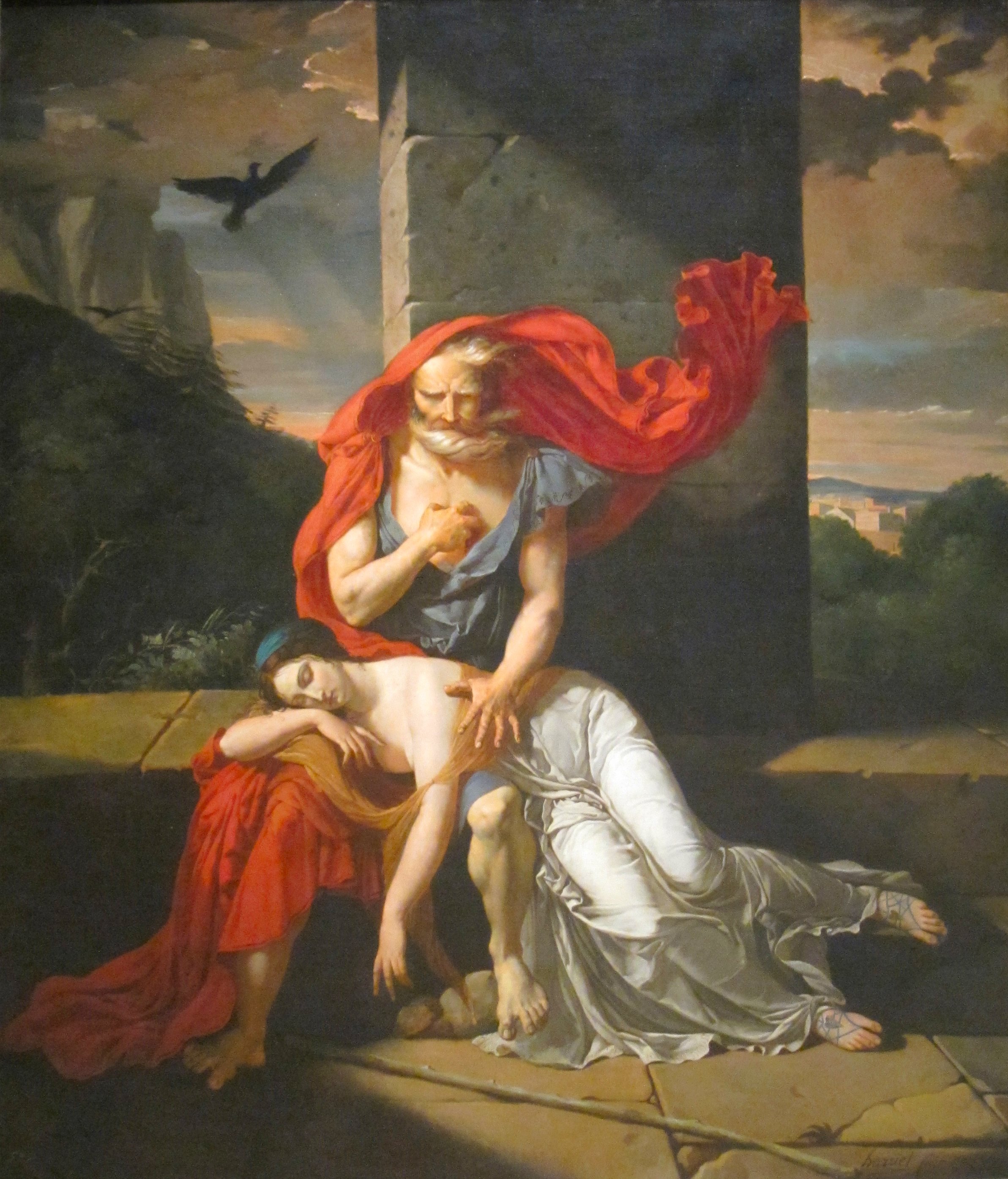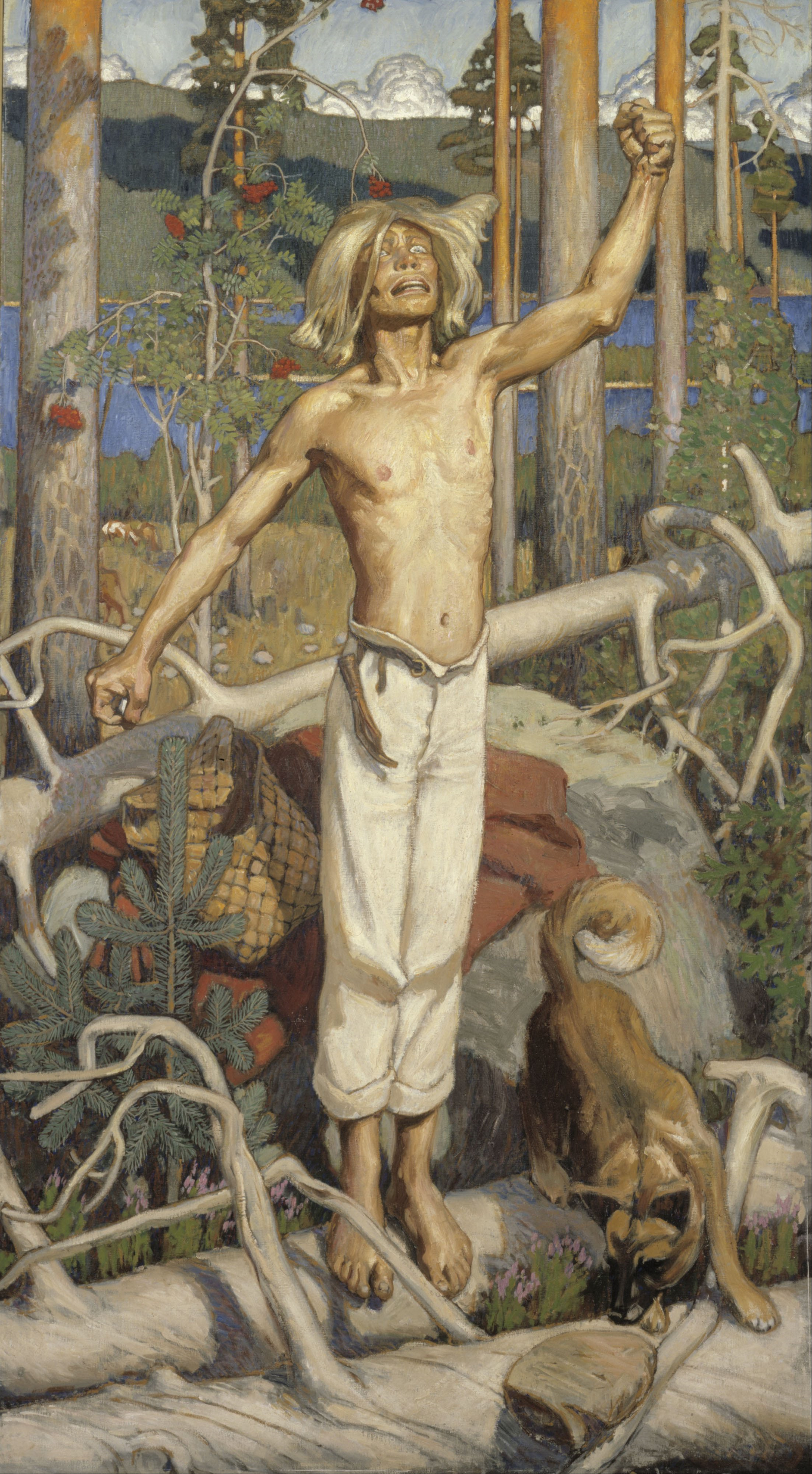Tragic Character on:
[Wikipedia]
[Google]
[Amazon]
 A tragic hero is the
A tragic hero is the
 The influence of the Aristotelian hero extends past classical Greek
The influence of the Aristotelian hero extends past classical Greek AFI's 100 Years... 100 Heroes and Villains
 A tragic hero is the
A tragic hero is the protagonist
A protagonist () is the main character of a story. The protagonist makes key decisions that affect the plot, primarily influencing the story and propelling it forward, and is often the character who faces the most significant obstacles. If a st ...
of a tragedy. In his ''Poetics
Poetics is the theory of structure, form, and discourse within literature, and, in particular, within poetry.
History
The term ''poetics'' derives from the Ancient Greek ποιητικός ''poietikos'' "pertaining to poetry"; also "creative" an ...
'', Aristotle records the descriptions of the tragic hero to the playwright and strictly defines the place that the tragic hero must play and the kind of man he must be. Aristotle based his observations on previous dramas. Many of the most famous instances of tragic heroes appear in Greek literature, most notably the works of Sophocles and Euripides.
Aristotle's tragic hero
In ''Poetics
Poetics is the theory of structure, form, and discourse within literature, and, in particular, within poetry.
History
The term ''poetics'' derives from the Ancient Greek ποιητικός ''poietikos'' "pertaining to poetry"; also "creative" an ...
'', Aristotle suggests that the hero of a tragedy must evoke a sense of pity and fear within the audience, stating that “the change of fortune presented must not be the spectacle of a virtuous man brought from prosperity to adversity." In essence, the focus of the hero should not be the loss of his goodness. He establishes the concept that pity is an emotion that must be elicited when, through his actions, the character receives undeserved misfortune, while the emotion of fear must be felt by the audience when they contemplate that such misfortune could possibly befall themselves in similar situations. Aristotle explains such change of fortune "should be not from bad to good, but, reversely, from good to bad.” Such misfortune is visited upon the tragic hero "not through vice or depravity but by some error of judgment." This error, or hamartia, refers to a flaw in the character of the hero, or a mistake made by the character.
Therefore, the Aristotelian hero is characterized as virtuous but not "eminently good," which suggests a noble or important personage who is upstanding and morally inclined while nonetheless subject to human error. Aristotle's tragic heroes are flawed individuals who commit, without evil intent, great wrongs or injuries that ultimately lead to their misfortune, often followed by tragic realization of the true nature of events that led to this destiny. This means the hero still must be – to some degree – morally grounded. The usual irony
Irony (), in its broadest sense, is the juxtaposition of what on the surface appears to be the case and what is actually the case or to be expected; it is an important rhetorical device and literary technique.
Irony can be categorized into ...
in Greek tragedy is that the hero is both extraordinarily capable and highly moral (in the Greek honor-culture sense of being duty-bound to moral expectations), and it is these exact, highly-admirable qualities that lead the hero into tragic circumstances. The tragic hero is snared by his own greatness: extraordinary competence, a righteous passion for duty, and (often) the arrogance associated with greatness (hubris
Hubris (; ), or less frequently hybris (), describes a personality quality of extreme or excessive pride or dangerous overconfidence, often in combination with (or synonymous with) arrogance. The term ''arrogance'' comes from the Latin ', mean ...
).
In other media
 The influence of the Aristotelian hero extends past classical Greek
The influence of the Aristotelian hero extends past classical Greek literary criticism
Literary criticism (or literary studies) is the study, evaluation, and interpretation of literature. Modern literary criticism is often influenced by literary theory, which is the philosophical discussion of literature's goals and methods. Th ...
. Greek theater had a direct and profound influence on Roman theater and formed the basis of Western theater that continues into the modern era, deeply influencing a wide variety of arts throughout the world, in diverse mediums such as literature, music, film, television and even video games. Many iconic characters featured in these genres follow the archetype of the tragic hero. Examples of such characters include Anakin Skywalker
Darth Vader is a fictional character in the ''Star Wars'' franchise. The character is the central antagonist of the original trilogy and, as Anakin Skywalker, is one of the main protagonists in the prequel trilogy. ''Star Wars'' creator George ...
from George Lucas' ''Star Wars
''Star Wars'' is an American epic film, epic space opera multimedia franchise created by George Lucas, which began with the Star Wars (film), eponymous 1977 film and quickly became a worldwide popular culture, pop-culture Cultural impact of S ...
'' films, Othello from the Shakespeare play ''Othello
''Othello'' (full title: ''The Tragedy of Othello, the Moor of Venice'') is a tragedy written by William Shakespeare, probably in 1603, set in the contemporary Ottoman–Venetian War (1570–1573) fought for the control of the Island of Cypru ...
'', Okonkwo from Nigerian author Chinua Achebe's novel '' Things Fall Apart'', Jay Gatsby from '' The Great Gatsby'', Arthas Menethil from the video game franchise '' Warcraft'', Captain Martin Walker from 2K Games' third-person shooter video game '' Spec Ops: The Line'', Eddard Stark from George R. R. Martin's novel series ''A Song of Ice and Fire
''A Song of Ice and Fire'' is a series of epic fantasy novels by the American novelist and screenwriter George R. R. Martin. He began the first volume of the series, ''A Game of Thrones'', in 1991, and it was published in 1996. Martin, who init ...
'' from the HBO television series adaptation ''Game of Thrones
''Game of Thrones'' is an American fantasy drama television series created by David Benioff and D. B. Weiss for HBO. It is an adaptation of ''A Song of Ice and Fire'', a series of fantasy novels by George R. R. Martin, the first ...
'', Homura Akemi
is a fictional character and one of two main protagonists from the 2011 anime series '' Puella Magi Madoka Magica''. A mysterious magical girl who first appears as a vision in one of Madoka Kaname's nightmares, Homura tries her best to prevent ...
and Sayaka Miki
is a fictional character from the 2011 anime series '' Puella Magi Madoka Magica''. A girl with a strong sense of justice and a classical music fan, Sayaka is the childhood and best friend of one of the series' protagonists, Madoka Kaname. She ...
from '' Puella Magi Madoka Magica,'' Kiritsugu Emiya in '' Fate/Zero'', Itachi Uchiha in '' Naruto'', Lelouch vi Britannia in Code Geass, and Harvey Dent
Two-Face is a supervillain appearing in comic books published by DC Comics, commonly as an adversary of the superhero Batman. The character was created by Bob Kane and first appeared in ''Detective Comics'' #66 (August 1942). As one of Batman ...
in '' The Dark Knight''.
Other tragic heroes include Macbeth
''Macbeth'' (, full title ''The Tragedie of Macbeth'') is a tragedy by William Shakespeare. It is thought to have been first performed in 1606. It dramatises the damaging physical and psychological effects of political ambition on those w ...
in William Shakespeare's '' The Tragedy of Macbeth''.
Some film historians regard Michael Corleone of '' The Godfather'' as a tragic hero, although using traditional literary conventions, the character would more closely fit the role of anti-hero, not tragic hero.References
Sources
* Carlson, Marvin. 1993. ''Theories of the Theatre: A Historical and Critical Survey from the Greeks to the Present.'' Expanded ed. Ithaca and London: Cornell UP. . * Janko, Richard, trans. 1987. ''Poetics with Tractatus Coislinianus, Reconstruction of Poetics II and the Fragments of the On Poets.'' By Aristotle. Cambridge: Hackett. . * Pavis, Patrice. 1998. ''Dictionary of the Theatre: Terms, Concepts, and Analysis.'' Trans. Christine Shantz. Toronto and Buffalo: U of Toronto P. . {{Authority control Philosophy of Aristotle Hero Heroes Tragedies (dramas)